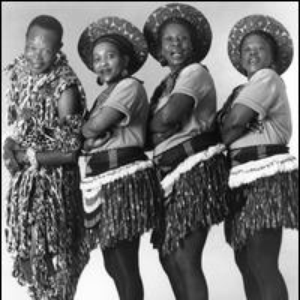
| Trackimage | Playbut | Trackname | Playbut | Trackname |
|---|---|---|---|---|
| 37350038 | Play | Ngicabange Ngaqeda | 00:00 Tools | |
| 37350039 | Play | Emthonjeni Womculo | 00:00 Tools | |
| 37350040 | Play | Thuto Ke Senotlolo | 00:00 Tools | |
| 37350041 | Play | Kwa Volondiya | 03:15 Tools | |
| 37350042 | Play | Ngasebenza Ngedwa | 00:00 Tools | |
| 37350043 | Play | Emthonjeni Womculo [The Stream of Music] | 00:00 Tools | |
| 37350044 | Play | Emthonjeni Womculo - Mahlathini Nezintombi Zomgqashiyo | 00:00 Tools | |
| 37350045 | Play | Ngicabange Ngaqeda [I Have Made Up My Mind] | 00:00 Tools | |
| 37350046 | Play | Emthonjeni Womculo (The Stream of Music) | 00:00 Tools | |
| 37350047 | Play | Ngicabange Ngaqeda - Mahlathini Nezintombi Zomgqashiyo | 00:00 Tools | |
| 37350048 | Play | Mgicabange Ngaqeda (I Have Made Up My Mind) | 00:00 Tools | |
| 88204437 | Play | Emthonjeni Womculo (feat. The Makgona Tsohle Band) | 00:00 Tools | |
| 37350049 | Play | Ngicabange Ngaqeda (I Have Made Up My Mind) | 00:00 Tools | |
| 37350050 | Play | I Have Made Up My Mind | 00:00 Tools | |
| 88204438 | Play | Ngicabange Ngaqeda (feat. The Makgona Tsohle Band) | 00:00 Tools | |
| 37350051 | Play | Kwa Volondiya - Mahlathini Nezintombi Zomgqashiyo | 00:00 Tools | |
| 37350052 | Play | Thuto Ke Senotlolo - Mahlathini Nezintombi Zomgqashiyo | 00:00 Tools | |
| 37350053 | Play | Ngasebenza Ngedwa - Mahlathini Nezintombi Zomgqashiyo | 00:00 Tools | |
| 37350054 | Play | Ke Ya Lakatsa | 00:00 Tools | |
| 37350055 | Play | O Ntshedise Morena | 00:00 Tools | |
| 37350056 | Play | Joko Ya Hao | 00:00 Tools | |
| 37350057 | Play | Tshollela Moya Wa Hao | 00:00 Tools | |
| 37350058 | Play | Sedi La Ka | 00:00 Tools | |
| 37350059 | Play | O Se Ka Nthibela | 00:00 Tools | |
| 37350060 | Play | Ntate Ba Tshwarele | 00:00 Tools | |
| 37350061 | Play | Se Teng Sediba | 00:00 Tools | |
| 37350062 | Play | Morena Ke Ya Ho Kopa | 00:00 Tools | |
| 37350063 | Play | Ha Le Mpotsa | 00:00 Tools | |
| 37350064 | Play | Ruri Le Nkhapile | 00:00 Tools | |
| 37350065 | Play | Ha Le Lakatsa | 00:00 Tools |

-
- 15,219
- plays
-
- 4,052
- listners
-
- 15219
- top track count
Mahlathini Nezintombi Zomgqashiyo ("Mahlathini and the Girls (or Daughters) of Mgqashiyo") was the name adopted for the 1983 reformation of Mahlathini and the Mahotella Queens. They released two albums: Amaqhawe Omgqashiyo (1983) and Pheletsong Ya Lerato (1984); a number of tracks from these albums were included on 1991's Mahlathini and the Queens compilation, The Lion Roars. '60s Africa found the Zulu and Sotho beginning to incorporate the influences of African American R&B, jazz, and blues into their traditional, indigenous music. New styles such as township jazz, pennywhistle street music, Kwela, and marabi were formed. Eventually, these myriad styles coalesced to create a new hybrid pop music that came to be known as mbaqanga. Though mbaqanga employs the traditional instrumentation of Western pop (guitar, bass, drums, keyboards, and vocals), the approach to song structure and rhythmic, melodic, and harmonic phrasing is uniquely African. Recorded between 1981 and 1984, THE INDESTRUCTIBLE BEAT OF SOWETO is the first (and arguably the best) of a slew of South African pop recordings that soon followed. Characterized by insistent, rhythmically complex beats, elastic, burbling basslines, tight, ska-sounding guitar accompaniment, and thick, multi-part vocals, this music is as intriguing as it is appealing. Groups with such names as Udokotela Shange Namajaha and Amaswazi Emvelo serve up bright, infectious melodies and percussively insistent tracks that are clearly intended for dancing. Though this "pop" may at first seem strange to Western ears, repeated listens reveal its true nature: rich, individual, joyous, and simply wonderful music. Read more on Last.fm. User-contributed text is available under the Creative Commons By-SA License; additional terms may apply.